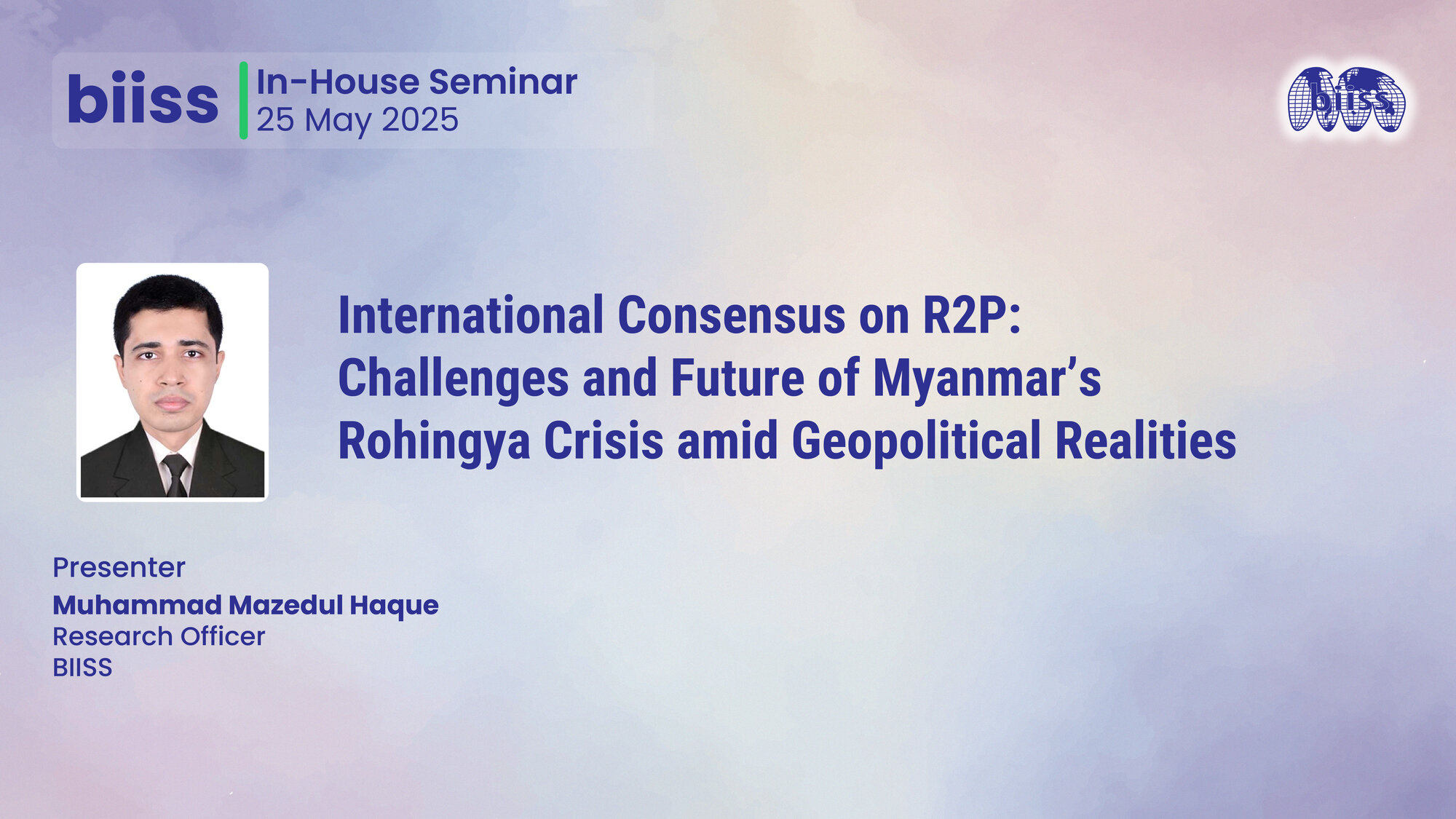
This in-house seminar examines the state of the international consensus on the responsibility to protect in the context of Myanmar and the protracted displacement of Rohingya communities. The conversation reviews the normative evolution of R2P, its pillars on prevention, reaction, and rebuilding, and how these ideas intersect with sovereignty and non interference principles in a contested geopolitical landscape. Presenters analyze developments in accountability pathways, including universal jurisdiction cases, proceedings at international courts, and targeted sanctions, while noting limits that arise from power politics and veto dynamics. The session considers humanitarian conditions in host communities, resource needs for education, health, and livelihoods, and the importance of protection sensitive programming. Discussions also assess options for building confidence and securing conditions that would enable safe, voluntary, and dignified return, along with measures to document rights and preserve evidence. The seminar highlights the role of regional actors, multilateral platforms, and civil society networks in sustaining attention and coordinating policy. A forward looking segment explores realistic levers for incremental progress, such as stronger information sharing, coherent donor strategies, and calibrated diplomatic steps that align pressure with incentives. The goal is to generate balanced recommendations that advance accountability, reduce human suffering, and keep open a pathway toward durable solutions consistent with international law.
